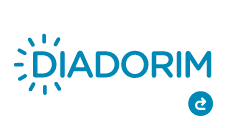A METÁFORA DO DIABO EM WOLFGANG VON GOETHE E VILÉM FLUSSER
ALGUMAS CONSIDERAÇÕES SOBRE ARTE E MODERNIDADE
DOI:
https://doi.org/10.35699/2238-2046..15713Keywords:
Johan Wolfang von Goethe, Vilém Flusser, ModernityAbstract
Johann Wolfgang von Goethe, in Faust, and Vilém Flusser, in A História do Diabo, served up the same metaphor of the evil, each in his own way, to write his time. This article establishes a reflection on modernity considering the political, ethical and aesthetic thought of each of these authors, having as a motto the figure of devil. If in Goethe Mephistopheles acts on the modern individual, urging the endless search for satisfaction of his desires, in Flusser, the devil has a more general sense, it is the time itself as progress and act on the humanity as a whole, also boosting the art for its constant renewal.
Downloads
References
BERMAN, Marshall. Tudo que é sólido desmancha no ar. Trad. Carlos Felipe Moisés, Ana Maria L. Ioriatti. São Paulo: Editora Schwarcz, 1986.
ECKERMANN, Johann Peter. Conversações com Goethe. Trad. Marina Leivas Bastian Pinto. Belo Horizonte: Editora Itatiaia, 2004.
FLUSSER, Vilém. A História do Diabo. 3ª ed. São Paulo: Annablume, 2008.
FLUSSER, Vilém. Bodenlos: uma autobiografia filosófica. São Paulo: Annablume, 2007.
GOETHE, Johann Wolfgang von. Fausto I. Trad. Jenny Klabin Segall. 2ª ed. São Paulo: Editora 34, 2014.
GOETHE, Johann Wolfgang von. Fausto II. Trad. Jenny Klabin Segall. 1ª ed. São Paulo: Editora 34, 2011.
GOETHE, Johann Wolfgang. Memórias: Poesia e Verdade. Trad. De Leonel Vallandro. 2a ed. Brasília: Editora Universidade de Brasília, 1986.
LEPENIES, Wolf. The seduction of Culture in German History. Princeton, New Jersey: Princeton University Press, 2006.
Downloads
Published
Issue
Section
License
Copyright (c) 2017 Caroline Saut Schroeder

This work is licensed under a Creative Commons Attribution-NonCommercial 4.0 International License.
Authors who publish in this journal agree to the following terms:
- Authors retain copyright and grant the journal the right of first publication, with the work simultaneously licensed under the a Creative Commons Attribution-NonCommercial 4.0 International License that permits sharing of the work with acknowledgement of authorship and initial publication in this journal;
- Authors are permitted to enter into additional contracts separately, for non-exclusive distribution of the version of the work published in this journal (e.g., the Creative Commons Attribution License).
- Authors are permitted and encouraged to publish and distribute their work online (e.g., in institutional repositories or on their home page) at any point before or during the editorial process, as this may generate productive changes as well as increase the impact and citation of the published work.
- It is the responsibility of the authors to obtain written permission to use in their articles materials protected by copyright law. Revista PÓS is not responsible for copyright breaches made by its contributors.












